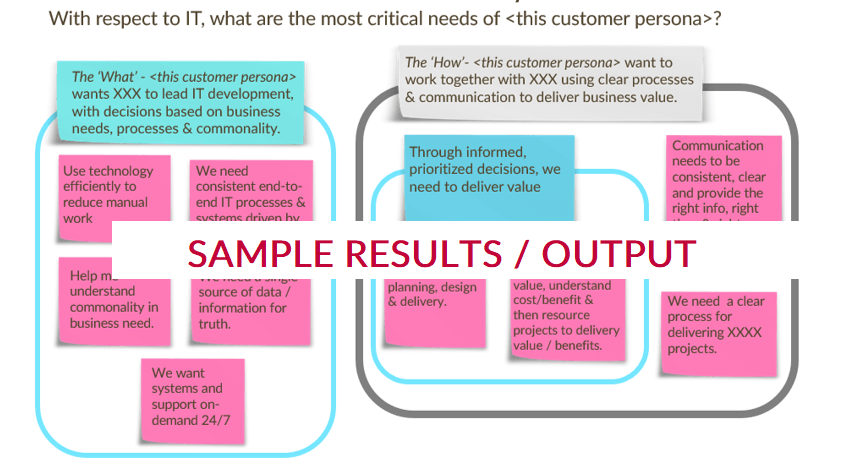B2B Case Study – SOAR Template Explainer with Examples
6 sections make up this easy-to-use B2B case study template. Adaptable to any length, this framework covers all the content you need to convey the value of your solution. Examples of various length and style are provided. These examples are case studies of clients’ experience working with JEM 9.
The image below shows the template in it’s entirety. Note that this is laid out on a single A4 page, yet covers all the aspects. The level of details and length you choose, should be aligned to the questions your prospective customers need addressed. Read on to learn more about each of the sections which together tell a complete story of customer success.

Situation
What is the client’s contextual starting place? Consider the key aspects influencing their situation. PESTEL, political, economic, societal, technology, environmental and legal, may be a useful frame to scope the situation..
Aim to ‘situate’ the case study in the market and competitive context that your client faced.
Make sure to ‘size / scope’ this client so future prospects can ‘relate’, i.e., see themselves or imagine similarities with their situation. Are they a “market leader” or nimble and innovative? Do they have internationality clientele or work with archaeologists in Bristol at the cutting edge of research?
Objectives
- Explain to your reader the key project objectives. Lists may encourage you to focus on key customer needs & pain points. Lists are easier to skim and provide variety for the reader.

2. Clients often have to make trade-offs. Including these ‘keeps it real’. E.g. do A before B, within budget € or work with existing SharePoint.
3. Including specifics make a case study more tangible. E.g. delivery by the opening ceremony of the London Olympics.
Actions / Your Solutions
- The core of what you deliver but don’t wait until the end of the project (sales cycle) to start collecting how you helped your B2B customer.
- Who was involved? Consider not just people, but also departments or existing processes.
- Don’t skimp on the other aspects of the case study. It can be tempted to wax lyrical on how wonderfully you took action. Aim for ‘action’ to make up no more than ¼ overall case study.
- Building a picture of the situation and objectives is as important as your actions.

Results – Stats & Stories
- How is the situation changed for your client? This is the corner to shine. If a prospect reads only one aspect, this will be it! Ideally include both stats and stories.
- Results should align well with the ‘objectives. What is faster, more reliable, cheaper, better quality, more accurate, now possible?
- Use the language typical of the customer persona / market segment. Screen for internal acronyms.
- What proof can you offer?
- Show –> imagery
- Tell –> quotes
- Return On Investment?? Other
- Trust is extremely important.
Quotes
Some people find it hard to write a quote for you. Many times it easier to talk to them asking what it was like to work with your product / you, then write it down yourself and later ask permission / confirmation. Something long is great because you can shorten it!


Aim for something specific. “It was great” gives no sense of what to expect. “The team were easy to work with and friendly” tells a richer story.
If you can’t use names, work with industry designation and accurate, descriptive but generic job title. e.g. Director of An International B2B IT Services Company.
Imagery
- Client Contact Image– give a face to your customer making them real. Ask for high resolution images.
- Application Image – a picture that gives a clear sense of the customer set up. E.g., Manufacturing might call for a factory floor image. Try to include action – people doing whatever it is they typically do (not looking at the camera. A real ‘less than ideal’ shot is better than most stock imagery.
- Action Image – an in-progress image gives prospects a clear idea of what to expect as they move to the new improved situation with your solution in place. Includes tools / support in the picture.
- Results Image – outcome image. This might be statistics / graphs, comparison of before and after, screenshots, your product in-situ or the client outcome after working with your solution.
Aim to have 3 – 4 good images that enrich your article, case study or blog post.

Further B2B Case Study Resources
- Download JEM 9 SOAR Case Study Template with Examples
- Case Study as a Web Page – B2B Case Study – Developing Customer Persona for IT Services Team
- Case Study as a Pdf B2B Case Study – Communicating the Value of Data Center Solutions
- Relatedly, Winning Awards – A Basis For Case Studies
=> Ready to explore working with Jane

